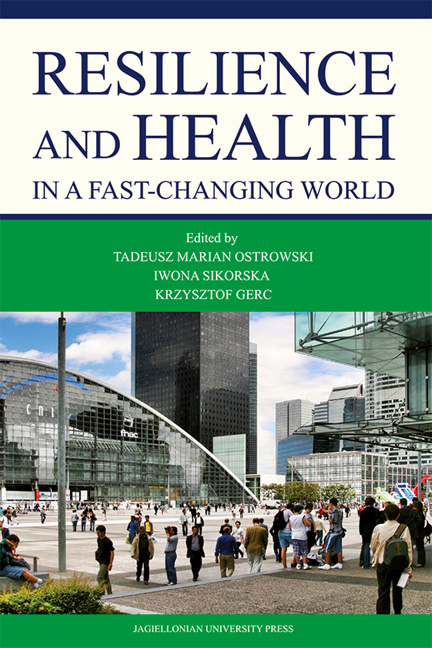Book contents
- Frontmatter
- Table of Contents
- Resilience from a Variety of Theoretical Perspectives: an Introduction
- I RESILIENCE IN THE PHILOSOPHICAL AND THE EXISTENTIAL CONTEXTS
- II SOCIAL CONTEXTS OF RESILIENCE
- III PROMOTING OF RESILIENCE AND ASSISTED RESILIENCE
- Improving the Socio-Emotional Health of Young People in Early Secondary Education: Preliminary Findings from a Study of the Pyramid Intervention Project
- Brave Children: How to Develop Resilience in Childhood
- Using Music to Stress Reduction
- Mental Health in Acceptance and Commitment Therapy (ACT)
- The Crisis of Adolescence in the Context of Resilience – Positive Prevention
- IV THREATS TO MENTAL HEALTH
- List of Authors
Using Music to Stress Reduction
from III - PROMOTING OF RESILIENCE AND ASSISTED RESILIENCE
Published online by Cambridge University Press: 12 January 2018
- Frontmatter
- Table of Contents
- Resilience from a Variety of Theoretical Perspectives: an Introduction
- I RESILIENCE IN THE PHILOSOPHICAL AND THE EXISTENTIAL CONTEXTS
- II SOCIAL CONTEXTS OF RESILIENCE
- III PROMOTING OF RESILIENCE AND ASSISTED RESILIENCE
- Improving the Socio-Emotional Health of Young People in Early Secondary Education: Preliminary Findings from a Study of the Pyramid Intervention Project
- Brave Children: How to Develop Resilience in Childhood
- Using Music to Stress Reduction
- Mental Health in Acceptance and Commitment Therapy (ACT)
- The Crisis of Adolescence in the Context of Resilience – Positive Prevention
- IV THREATS TO MENTAL HEALTH
- List of Authors
Summary
Abstract
Strong, long-lasting stress understood as the bodyʼs psychosomatic response to stimuli interpreted as stressors is one of the main pathogens. Reception of music with appropriate structural features is one of the non-pharmacological methods of reducing the level of stress. A lot of research studies confirm the influence of music on regulation of the human psychosomatic condition. Reception of calming music may reduce muscle and emotional tension, minimize the level of anxiety, lower the blood cortisol level, slow breathing and heart rate, lower blood pressure and give a sense of relaxation. Properly chosen music positively affects the physical and emotional state of a recipient, stimulating the secretion of endogenous opioids and others chemicals by the organism, which improve well-being and reduction of pain. Music is a universal means of health-promoting, successfully used in people of all ages. Music therapy techniques based on physical activity to music, relaxation supported by music, musical improvisation, performance, composing or artistic creativity inspired by music and others are useful in reducing stress.
Key words: music, stress reduction, music therapy
Introduction
This article will discuss the phenomenon of using music in order to reduce the level of stress. We understand the concept of stress as a state of body's psychophysiological mobilization in response to stimuli interpreted as stressors (Tylka, 2000). It should be added that regular contact with music can be beneficial to the process of resilience. Reception or playing music can support the regulation of psychosomatic state of the organism, which is advantageous for the process of positive adaptation to difficult life events. We will review the research on the effects of music on the regulation of stress in the first part of the publication. Then we will consider mechanisms of music influence on psychosomatic state of the human organism. We will also focus on the mechanism of reducing psychosomatic tensions by music. Then features of relaxing music will be discussed. In the final part of this article we will discuss techniques of music therapy, which are useful in reducing psychosomatic tension associated with stress.
- Type
- Chapter
- Information
- Resilience and Health in a Fast-changing World , pp. 141 - 152Publisher: Jagiellonian University PressPrint publication year: 2015



